Harris, Reed & Seiferth
|
|
Do you own a boat and are you looking for insurance coverage but don't know where to start? If can seem overwhelming at first, and that's why it can be a good idea to seek advice from an insurance agent. We spoke with a marine product manager to gain some insight on boat insurance, and they recommend five important questions you may want to ask while shopping around.
1. Do I need insurance for my boat? "Some people may think that their boat is adequately covered through an endorsement on their homeowner's policy. Worse yet, they don't carry any coverage at all. Boat owners should look for a specialized insurance policy that offers the coverages that fit their boat and lifestyle. It's better to be prepared and have it insured for peace of mind while on the water." 2. Will my personal property be covered? "Buying life vests, water skis and fishing gear can really add up. A good policy will not only provide coverage for all of this equipment, but also for other personal property on board." 3. What discounts are available? "There's a variety of discounts a customer could qualify for, like a multi-policy discount if they insure more than just a boat with the same company, or a multi-unit discount if they insure more than one boat. Discounts will help a customer save money on the policy's premium." 4. Is towing and roadside assistance available? "A day of fun in the sun could easily be ruined if the boat breaks down while on the water. This is a great coverage to add to a policy and covers either the cost of certain emergency fixes at the point where the boat broke down, or the cost of towing the boat to nearest repair shop. Towing and assistance should also apply to the trailer if it breaks down while towing the boat." 5. Is the type of boat I have eligible for insurance coverage? "There are many different kinds of boats — pontoons, open bow, fishing boats, cabin cruisers—and even more things to consider like speed, length, value and use of the vessels. That's why it's important to make sure your agent knows all these things up front, even how you will use your boat. Your agent can help you get the insurance coverages that are just the right fit." Looking for boat insurance? Get a quote today by clicking here. Source: https://www.foremost.com/learning-center/five-questions-to-ask-about-boat-insurance.asp
0 Comments
 No matter how much you enjoy being on the water, suffering from nausea and fatigue on a boating excursion might make you wish your feet were planted on land. According to Montavit, about 10% of the population is extremely sensitive to motion sickness, with another 75% subject to occasional motion sickness. This travel illness can take a nice trip out at sea and turn it into a nightmare, but don't fret, I've got the answers for you. Here's some useful info on sea sickness so you can have a fun day out on the waves! Why do I experience sea sickness? Sea sickness is defined as motion sickness that happens on the water. The inner ear becomes unbalanced due to the rocking motion of a boat or ship and can have side effects like a cold sweat, upset stomach, fatigue, and/or nausea and vomiting. 6 Methods to Cure Sickness
(Source: Wikihow) Source: https://www.foremost.com/learning-center/curing-sea-sickness.asp 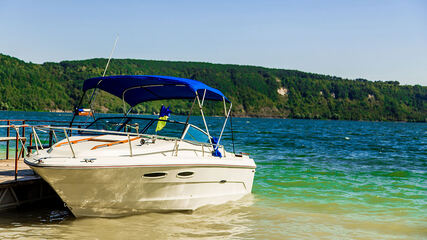 Whether you're a "sailor" who's going out to sea on a pontoon, speed boat, or sailboat, there's something special about being behind the wheel, cutting through the waves. However, I don't want your day to be ruined by forgetting the most essential items needed for your trip out at sea. That's why you should follow this checklist cleverly titled the Sailors Scroll for Stocking Your Seaboat and never forget another important item again:
And don’t forget these other items:
Source: https://www.foremost.com/learning-center/sailors-scroll-for-stocking-your-seaboat.asp
 Warm weather has come early in some parts of the country, making boat owners itching to get out on the water. I speak from experience, since I inherited a boat and will be putting it on the water this summer. It has been unseasonably warm in my part of the country and I can't wait for it to become the appropriate time to ride the waves. However, our marine product manager, Brad Seeley, has reminded me that there are many things I need to do in order to get that beauty ready for the season. If you are struggling with the pre-launch boat preparation, here are some great tips from Discover Boating to help get that ride out as soon as possible.
Get prepared to enjoy this boating season and leave the rest to the water. Source: https://www.foremost.com/learning-center/tips-to-get-your-boat-ready-for-the-waves.asp
In colder weather, it's important to remember that you must be careful of the dangers of hypothermia when boating or riding a personal watercraft. Spring and fall are prime times to become a victim of hypothermia. There are days the air may feel warm and the thrill of being out on the water is greater than the fear of how cold the water actually is and what could happen if you were to fall overboard or capsize. Off-season (or early- or late-season) ventures on the water pose special circumstances. There are fewer boaters on the water so the likelihood of a prompt rescue is greatly reduced. Also, people don't anticipate falling into the cold water and therefore don't prepare for it. But there are things you can do to prevent the risks associated with hypothermia — things that could save your life. Hypothermia facts Hypothermia is a condition that exists when body temperature drops below 95 degrees. This can be caused by water or air exposure. And the body can cool down 25 times faster in cold water than air. Factors such as water temperature, body fat, body size and movement all play a part in how quickly the body's temperature drops. PFDs for protection The number one thing you can do to protect yourself against the results of hypothermia is to wear a life jacket. A Personal Flotation Device (PFD) can help in many ways. A PFD can prevent you from having to exert energy and body heat to try to stay afloat. It can help keep your head above water and reduce the chances of you inhaling water due to the immersion gasping reflex caused by cold water. And it can also help hold in body heat. When in cold water When boating in cold water, it is a good idea to wear a wet suit or some type of neoprene undergarment to hold in body heat. Even with a wet suit on, hands can get cold quickly, so gloves can be an important layer. As most of your body heat is lost through your head, it's important to try to keep your head as dry as possible. A hat is a good idea. Conserving heat: Goal Number One Conservation of heat is the number one objective for a person who has fallen into cold water. You should try to pull yourself as far out of the water as possible to reduce heat loss. If you can climb on top of an upturned boat or anything that floats, it can increase your survival time. Assume the H.E.L.P. If you can't get out of the water, you should assume a Heat Escape Lessening Posture (H.E.L.P.) – commonly referred to as the fetal position, it helps you float effortlessly and helps protect those areas most susceptible to heat loss. If there are others in the water, huddle to share body heat and conserve the energy of the group. More considerations Some other tips to consider when going out on the water early-, late- or off-season include:
Every boater and personal watercraft operator should know the signs of hypothermia, prepare against cold water immersion and know how to respond in the event that it does happen. Most importantly, a PFD should be worn each and every time out on the water. You never know when it could save your life or the life of someone you know. Stages of Hypothermia Hypothermia is a gradual process and happens over a period of time. There are stages of hypothermia that the body goes through before lapsing into an unconscious state. The extent of hypothermia and treatment vary. Consult the following: Mild Hypothermia
Moderate Hypothermia
Severe Hypothermia
Source: https://www.foremost.com/learning-center/surviving-hypothermia.asp
The most common type of boating accident is a collision with another vessel, according to the U.S. Coast Guard. To avoid this and other issues on the water, here are some responsible boating tips that will help keep your family and your boat safe.
First, it is the responsibility of all boaters to know the rules of the water. Make sure you take a boating safety course to learn more about navigation rules. Some states have requirements in addition to the federal requirements, so it's good to check the laws in your specific state to learn more. The most common type of boating accident is a collision with another vessel, according to the U.S. Coast Guard. In addition, you should also:
The U.S. Coast Guard has certain requirements you must follow, which may change depending on the size of your boat:
Stay safe both on the shore and on your boat. Your safety is number one to us. Looking for boat insurance? Click here. Source: https://www.foremost.com/learning-center/boating-tips-learn-how-to-be-safe-on-the-water.asp Some people make boat launching look easy. But it's a touchy, tricky business, especially for new boaters. If you've struggled in the past, don't give up in frustration. Practice makes progress! And with a little more experience, you’ll soon be the Captain Jack Sparrow of the boat launch.
Here are eight tips for getting your boat back to its natural habitat!
Source: https://blog.foremost.com/boat-launching-tips.asp If you're new to hauling a boat, these tips will help you build confidence and get comfortable with towing a boat from point A to point B. If you're already an experienced boat-trailering captain, this will serve as a helpful refresher course before your next outing.
Without further ado, here are eight tips for a trouble-free trip to the boat ramp! 1. Experience leads to confidence. Practice so you can get comfortable with trailering. Find a large, open space—like an empty parking lot—and put down some orange cones or life jackets. Then spend time learning to back up, make turns and avoid obstacles. 2. Backing up takes extra practice. Most people find driving in reverse while towing a boat to be the toughest, so work on honing this skill. Remember that backing up in a straight line is almost impossible. Instead, focus on moving in the right direction with slow, slight turns. 3. Level-up your mirrors. Big, extended side-view mirrors are definitely a great idea for trailering, especially when you tow on busy roads. Attachable side-view mirrors are available for purchase when you need to increase visibility. 4. Swing wide when tackling turns. To ensure you don’t hit curbs or other vehicles with your boat, take turns extra-wide. If you can, try to prepare for turns by staying in the outside lane to give yourself more room. 5. Keep it roomy with stopping distance. Extra distance between your vehicle and those ahead of you is crucial. You don't want to slam on the breaks with a boat in tow—that could cause jackknifing. So slow down and be alert… patience you must have, my young Padawan. 6. Be conscience of large vehicles. If semi-trucks and other big vehicles pass you, briefly lift your foot off the accelerator. This little trick will help reduce buffeting by the truck's wind and keep your rig from swaying. If you notice swaying, take your foot off the gas to minimize it. 7. If swaying—stop, inspect and adjust. Taking your foot off the gas will minimize swaying, but if it seems to be a constant problem, get out and examine your rig. Try adjusting the trailer's tongue weight—it should be between 10 and 15 percent of the rig's overall weight. 8. Conduct a post-arrival check-up. When you reach your destination, feel your trailer's wheel hubs. They should be cool or slightly warm. If they're hot, there may be problems with your bearings; get them serviced as soon as possible! Ready for the next step? Read our blog about boat launching so you know what to do when you reach the ramp! Source: https://blog.foremost.com/boat-trailering-tips.asp The wind in your hair, the sun on your face, and the open water in front of you. Sound appealing? Then you might want to join the ranks of boat owners all over the country. But before you cut through that clear blue, there are some things to keep in mind. Whether you're buying a fishing boat, cabin cruiser, pontoon or speed boat, different components like cost, horsepower, weight capacity or onboard storage may prove to be more important to you than others.
Answer these questions before going boat shopping:
And a few other components to consider...
Source: https://blog.foremost.com/what-to-consider-when-purchasing-a-boat.asp During a freeze, fresh water that has not been flushed out of a boat can cause major damage. Water left in pipes, plumbing lines, holding lines, sewage tanks or the engine has the potential to freeze and expand causing, potentially, thousands of dollars worth of damage to a boat. A cracked engine from lack of winterization can be very costly. Even more, if you didn't take the time to winterize your boat, those damages may not be covered under your boat insurance policy. That's why it's so important to take some time to winterize your boat. An hour of prevention could save you thousands of dollars and one big headache.
Best Time To Winterize A Boat The best time to winterize your boat is when you've decided your boating season is over. For locations that have timely seasons it may be easy to figure out what time of year that is. In the Great Lakes region, for example, many boaters target Labor Day weekend as the right time to take their boat out of the water before the cold weather hits. For states like Texas, California or Florida that don't have a typical winter season, deciding when to winterize your boat can be a little harder. In fact, it's in these states that damage due to lack of winterization occurs the most. How can you winterize if there is no winter? Winterization is really nothing more that following proper storage procedures. Whether a location has a typical winter or not, you should know how to properly store your boat because even a state like Texas can be hit with cold weather. Who Is Typically Affected? According to Glenn Sladek, general claims adjuster for Farmers Insurance, boaters that live in a region that doesn't have a typical winter are the ones that need to be informed of proper boat winterization techniques. "The people that typically get burned are the people that don't have consistent winters. The weatherman says there's going to be a freeze, and unfortunately some people don't take any action to protect their boat. By the time the freeze occurs, the damage is done," says Sladek. With 21 years of marine claim experience under his belt he has seen a plethora of damages associated with not winterizing boats. Sladek continues, "Winterization should only take an hour for boats under 26 feet and towed on a trailer. If you don't know how, any marine facility or dealer should be able to help you, but it's really not that hard to do." Follow The Steps Below To Winterize A Boat
Looking For Boat Insurance? In addition to following the proper steps to winterize your boat, make sure you have a good boat insurance policy in case the unexpected happens. Learn about our Marine Choice® packages. Source: Foremost Insurance - On The Water - Winterizing Your Boat |
Categories
All
Archives
May 2024
|
Social MediaContact UsNavigation |
|
Website by InsuranceSplash
Privacy Policy | Terms of Use
© 2025 by HARRIS, REED & SEIFERTH INSURANCE GROUP, INC. All rights reserved.
© 2025 by HARRIS, REED & SEIFERTH INSURANCE GROUP, INC. All rights reserved.

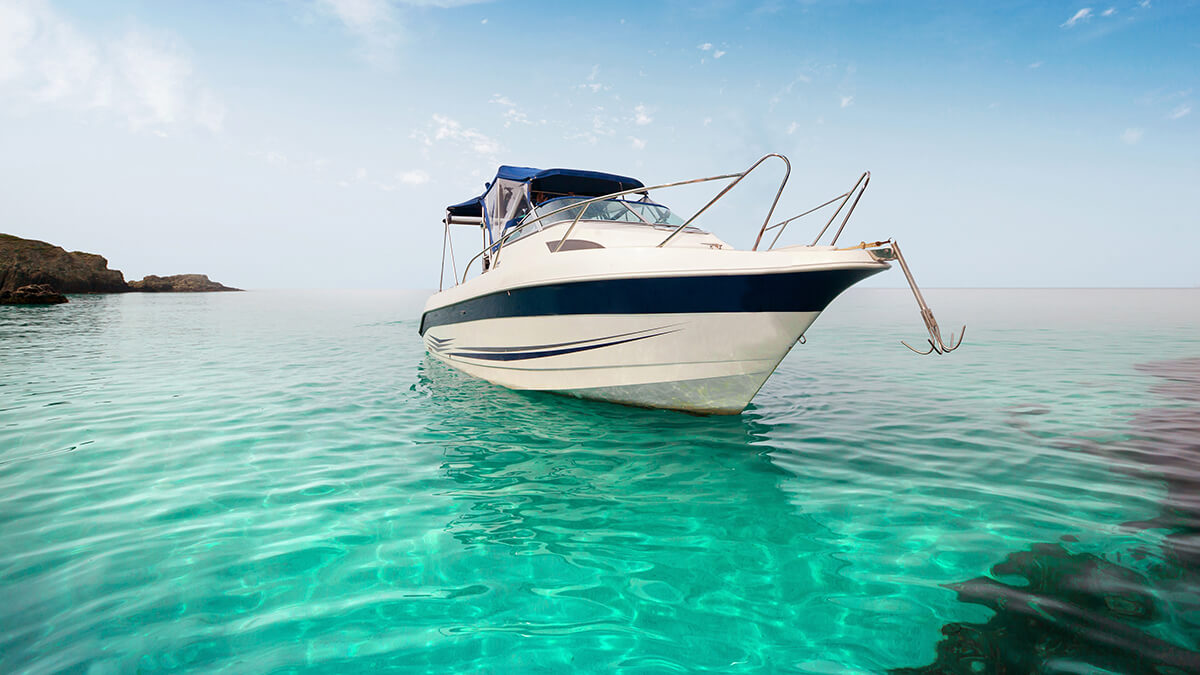
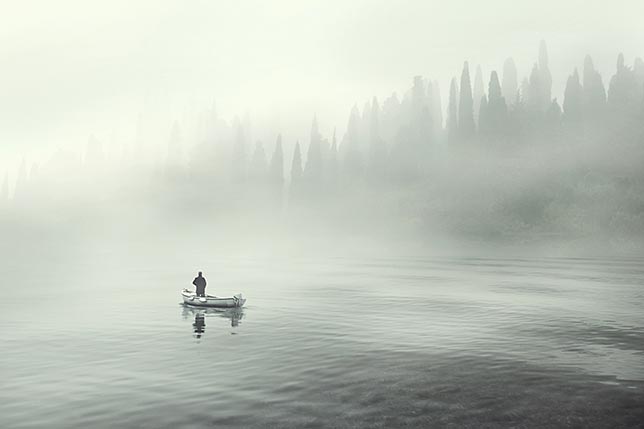
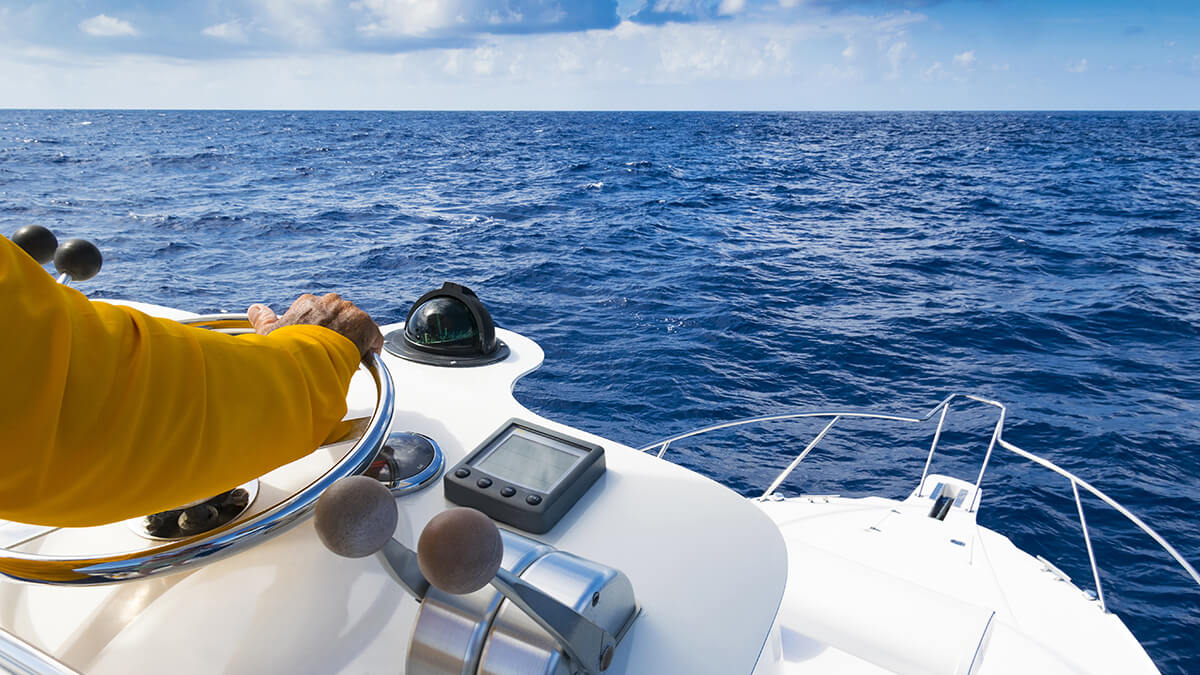
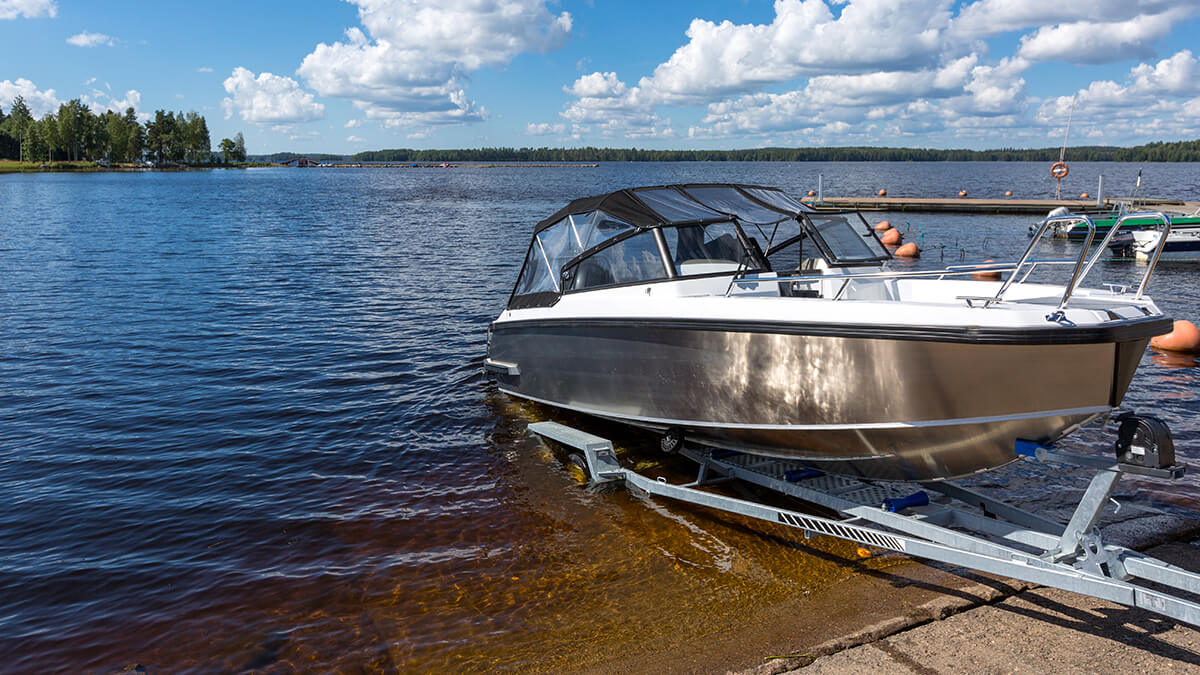
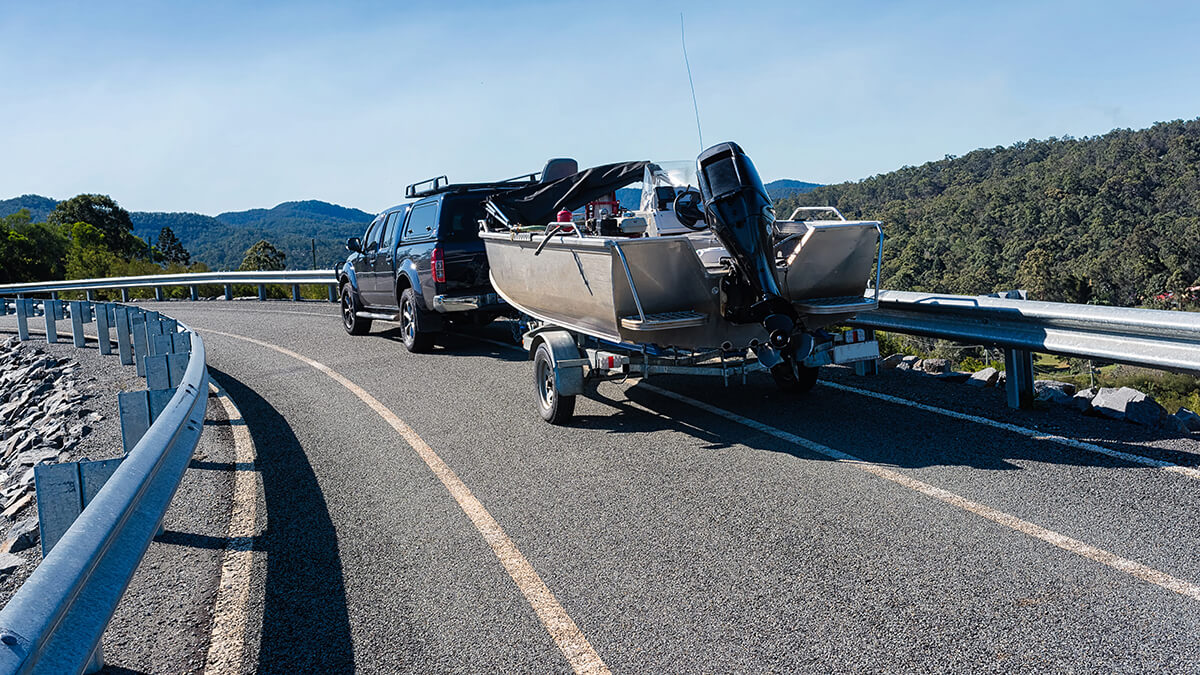
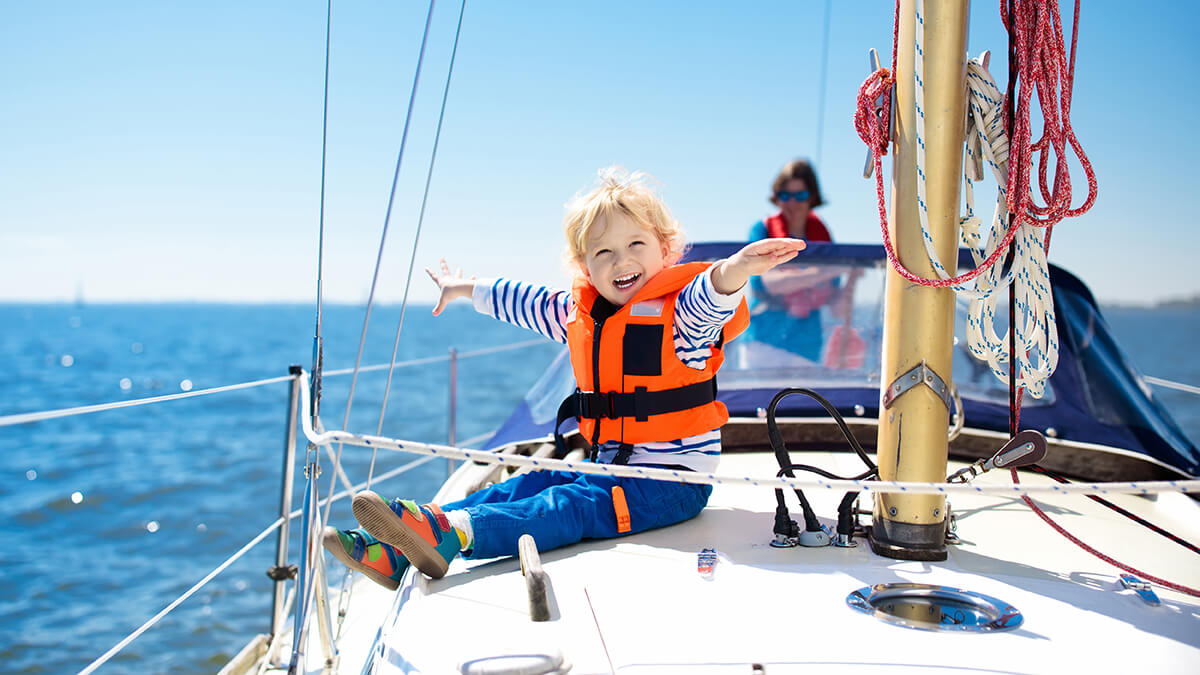
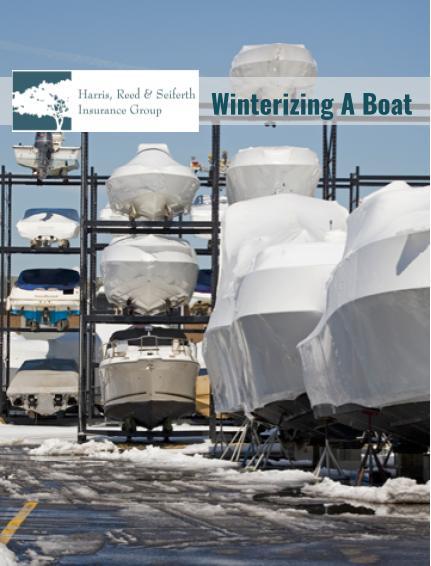
 RSS Feed
RSS Feed